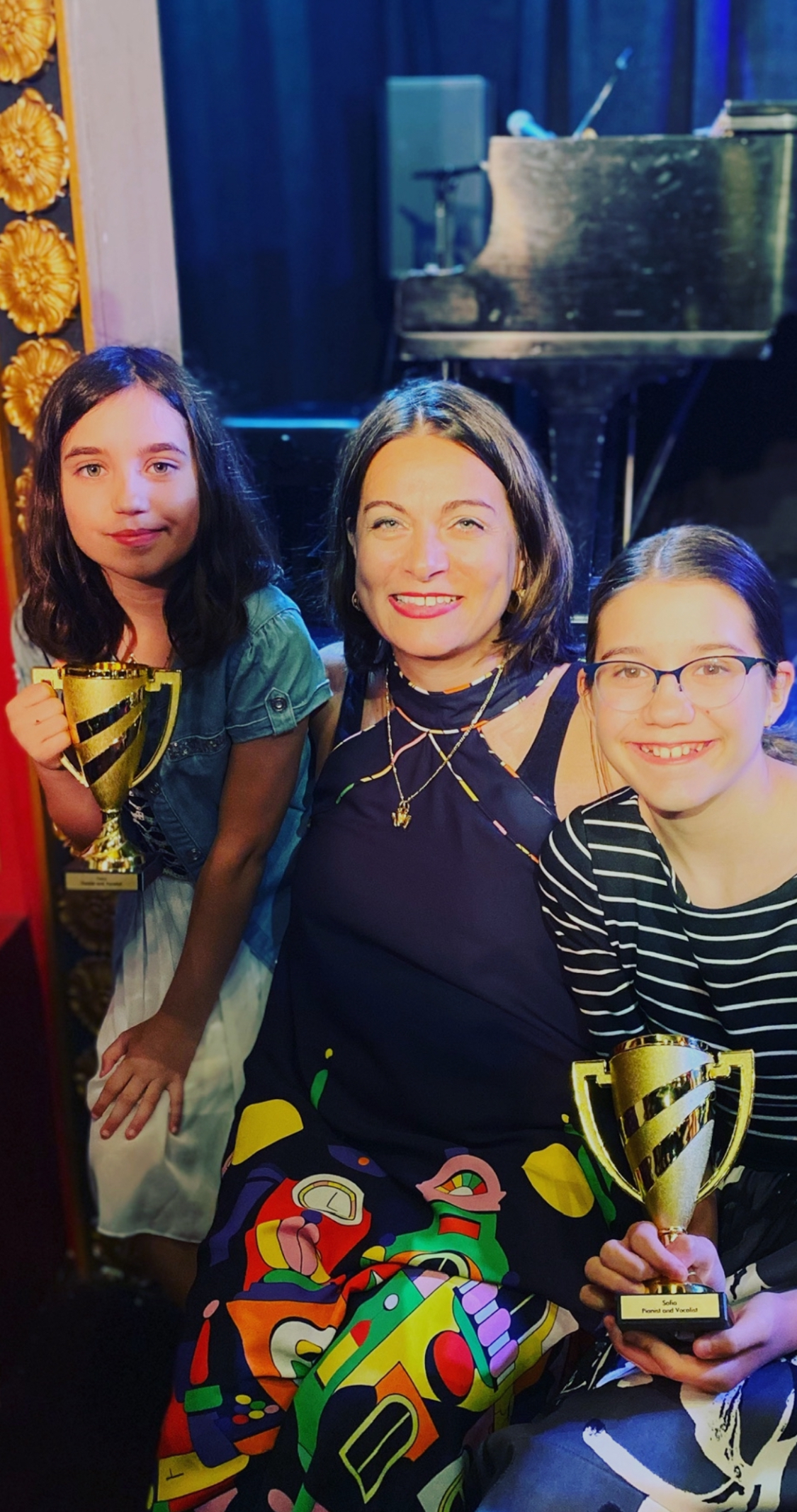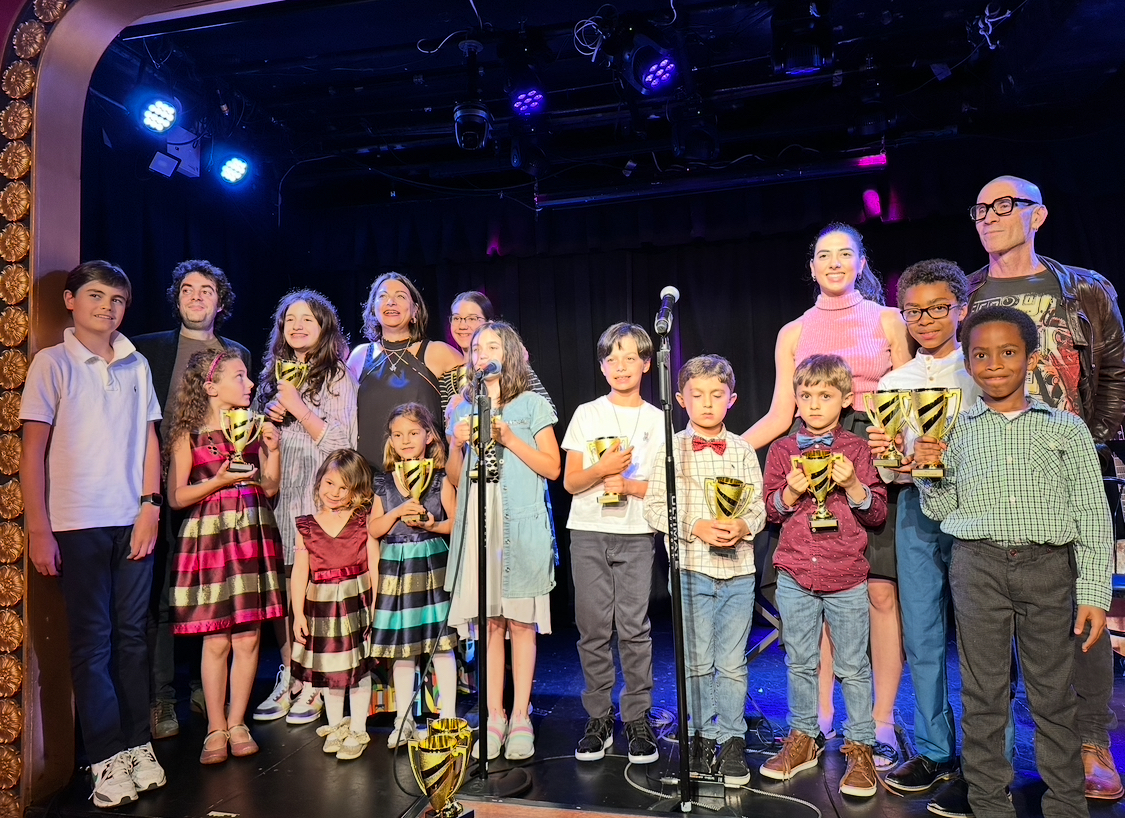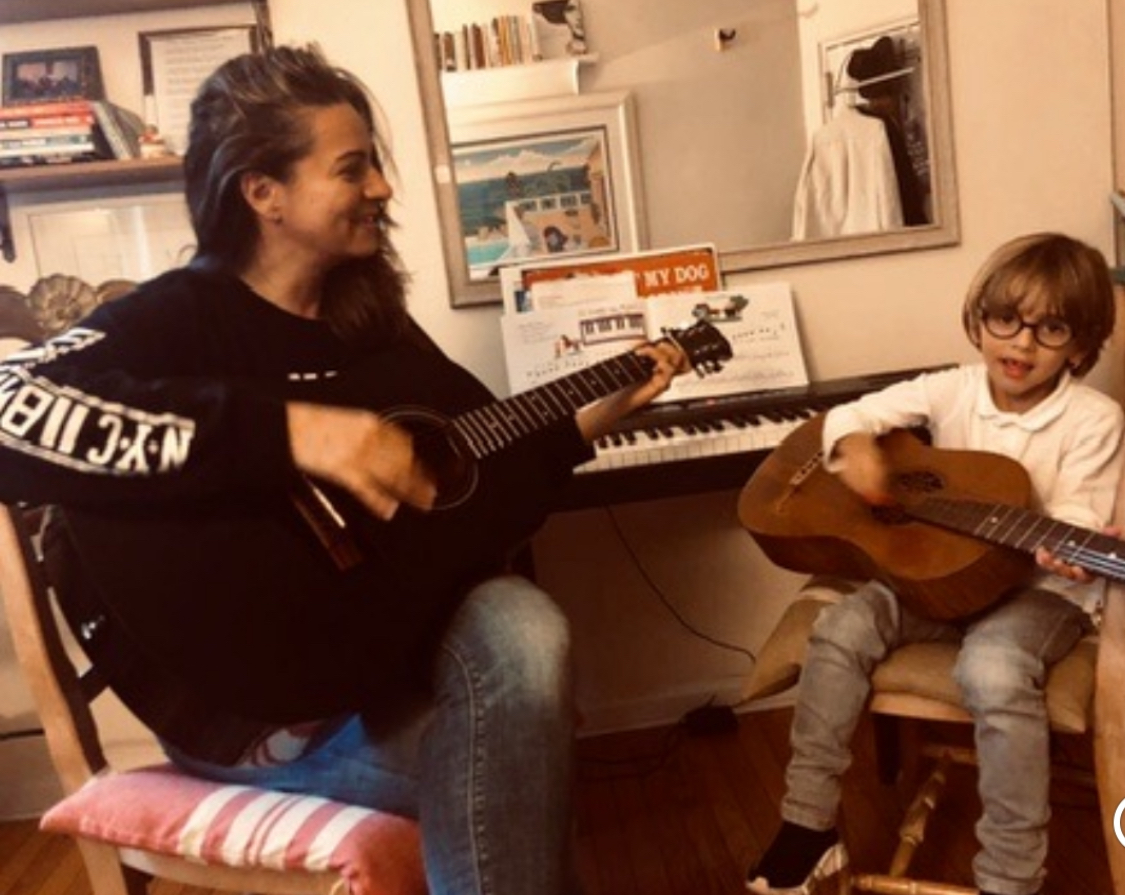“Music is a full expression of oneself, an exploration of one’s inner reality. For me it was a return to my true essence”. This is how Valentina Marino defines her relationship with music, a passion that has allowed her to redefine her own personal and professional success. Since she decided to hang up her lawyer’s robe and dedicate herself to a career as a musician, Valentina Marino has not slowed down. Of Sicilian origin, she grew up in Rome but has chosen the world as her second home. After attending the prestigious University of Music in Rome, she moved to Vienna, where she began performing as a band leader. She has lived in New York since 2010, where she obtained a BFA in Vocal Jazz Performance at the New School for Jazz and Contemporary Music.
A singer-songwriter, as well as a teacher for piano, guitar and singing, Marino has performed with artists such as Ray Blue, Cameron Brown, Anthony Pinciotti, Ray Gallon, and Marco Panascia, in the iconic clubs and music venues of New York City. In 2022 she founded the New York-based Mondo Music School, which also offers online classes. Her full career sees her alternating between teaching, performing, and writing music as a composer.
After signing with the record label Jazzheads, which released her first album in the United States In the Name of Love (2016). Her single “The Peacocks,” from the album East 75th, a collection of songs that she wrote and arranged, was inspired by stories and situations of her life inside and outside the New York City apartment on the Upper East Side. Quarantine Covers is Valentina’s album that was born in the midst of the pandemic, together with the single “Heart of Glass”, both represent the musician’s latest experiments with rock, pop and indie sounds.
And while she is working on her latest album, Valentina shares with La Voce how teaching is an integral part of her musical career, her latest album and New York, the city that welcomed her and allowed her to express her talent.
In 2022 you founded Mondo Music School. How did the idea of a music school in New York come about?
The idea was born from the desire to create a community of students and teachers committed to the development of musical talent and personality. When I began my training at the New School, teaching was required as an experience. So I began to teach both privately – vocal coach, guitar and piano – and in schools like School of Rock. I began to observe with attention and fascination the learning in children, while a community of teachers, artists, students was formed. It was then that I understood that the time had come to teach, to create a community and to evaluate teaching not as a refugium peccatorum but something intrinsic to the career of a singer. The teachers of Mondo Music, six in all, are multi-instrumentalists and musicians with a musical background that crosses all genres: jazz, techno, classical. We are a family, a group of passionate and enthusiastic musicians who today follow fifty students.

How do you recruit your students and what is the method used at Mondo Music School?
“I evaluate the student’s musical aptitude and, based on this first test section that also includes rhythm, I decide which teacher is best suited for each student. Our teaching is based on the approach to learning as performance. Ours is a performance-based school.
“The students, young and old, perform twice a year in a theater in Manhattan – for two years the Little Marjorie Theater at the YMCA on the Upper West Side. The adults participate in open mics, jam sessions, they learn to record in the studio if they want, they distribute their pieces through Mondo Music on all platforms. Since the end of 2024, Mondo Music has had a record label that includes sound engineers and marketing specialists, recording, editing and distribution. What makes this school unique is that it trains musicians and artistic personalities, it does not limit itself to teaching music to students. Part of the Mondo Music method is also to encourage all singers to accompany themselves with an instrument and vice versa, because we were born with this instrument inside us, the voice. And on the other hand, there can be no established singer who is not able to play an instrument.
What are the advantages of a performance-based school?
The fundamental component, the performance, is not a recital but a way of presenting yourself to the world live, even as live opportunities are rare in today’s environment. And it is very nice to learn to be on stage, we push a lot on this aspect. Teaching is performing, learning is performing, performing is teaching and learning. There are no separations between these aspects. Before arriving at the moment of the performance, the Mondo Music School method begins by providing students with the tools to create a song or a piece. We start from the creation of a piece, and then go backwards and teach the reading of notes, solfeggio. In this sense, our method is the opposite of a classic method that starts from solfeggio. The blending between the roles of the teacher-artist-musician on one hand, and the student on the toher, is our strong point.
Mondo Music was born in New York, where most of your students live, but it is also a school that is based on online teaching. How does Mondo Music represent this city?
Mondo Music fully represents the multiculturalism of New York, the melting pot of cultures, languages, which translate into different ways of singing without betraying one’s own culture and developing one’s own language. Mondo Music was born in New York but it is also a school that offers the possibility of virtual lessons all over the world, not only in New York where many choose the hybrid mode because moving is often complicated. Online teaching allows everyone in the world to come to our school.

What is the typical profile of your students and why do they choose to study with Mondo Music?
Those who approach the school do so for various reasons: technical, for passion, to cultivate self-expression, to communicate and practice the articulation of language, because it is part of the educational process or for therapeutic purposes. Some adults approach singing to improve their English. Many started because they came from a corporate or stressful environment and singing is like therapy. Music is rhythm, it is a memorization activity, it is a world that opens doors for you.
And what doors did music open for Valentina Marino?
“I came from the environment of the legal profession, that was toxic for my sensitivity. I felt imprisoned and forced into dynamics based on somewhat false communication and protocols of interaction. I had to express a face that was the opposite of what I was. Music for me was like changing identity, returning to my truest essence.
Singer, musician, composer. What aspects of these different profiles and experiences do you share with your students?
The most beautiful gratification you get from teaching is the exchange of vulnerability and the invitation to self-expression. My family has always had a strong musical culture but I had a great need to self-express. Self-expression is a physiological need because there are many discomforts with different roots. For me, teaching is an invitation to self-expression. When you play, sing, you present yourself first of all to yourself, you establish a contact. And the greatest gratification of all is to express yourself, no matter how much you have learned.
Teaching music means seeing the human being in his authenticity and integrity. Expression is not only an act of theatricality but of freedom and creativity. Self-expression is the culmination in the learning process. You don’t learn if you don’t know how to express yourself.
For a musician and singer, what does teaching represent and what is the added value of your experience as a singer and musician?
You can only teach what you have truly learned and absorbed deeply. And when you are on stage, in the studio or at home writing or playing, you remember the lessons and the exchanges with the students. That’s when you feel like a full-spectrum musician.
How has the New York music scene changed in recent years? Do you think New York remains a necessary stop for a musician?
There is a comeback, there are new venues. Many closed during COVID but others are opening. Jazz never dies in New York. Undoubtedly the city has changed and will always change. Those who lived in the 70s no longer recognize it.
But what remains unique about New York is that we all meet here. No other city allows these meetings with ease and immediacy like New York. It is a unique city from this point of view. It is unique because in New York we are all here with great energy, desire, and musical creativity that only this city can give. For every musician it is an obligatory stop because the world of music is well-resourced here, and there is a lot of synergistic collaboration between artists. It is also true that today, New York does not as much in terms of earnings but it always remains the place to share energy, humanity, and musical creativity.

Does musical culture in the United States hold up?
It holds up, but not always in the places that should promote it, such as schools. Unfortunately, in recent years, the funds reserved for music even in Manhattan schools are lacking and in school they make very little music. Before founding Mondo Music, I taught in private schools in Manhattan, all schools that had a specific music program like Friends Seminary, Little Red School. Even in these schools, funding for music is reduced, not to mention public schools. In this sense, it is no longer the New York of the past.
What advice do you feel like giving to those who want to pursue a musical career today between artificial intelligence programs and talent shows.
“The sad thing is the spread of homogeneous repertoires. The problem is not auto-tuning, everyone uses it, but the lack of content and creativity. AI denies craftsmanship and therefore the work of an artist. The artist must produce by himself, the source must come from within and if there must be collaborations, they must be at the level of human and artistic exchange. What humanity is behind AI? It is a new phenomenon, I don’t know what will happen. But I wonder: how can you make art in this way?”
You are working on your latest album, after Quarantine Covers released in 2020. Back then we were in the midst of the COVID crisis. How has Valentina changed since then and what new musical awareness have you acquired?
Now we are at the mercy of other crises… Let’s hope we can get by! Luckily, music always arrives like an ambulance to save our lives in everyday life. Today’s Valentina is even more grateful to music than yesterday.
My latest studio work is the result of many years, where I continue the collaboration with some historic musicians and where I intertwine classic jazz with modern pieces revisited in a jazz key. It will be out soon! I’m excited.










